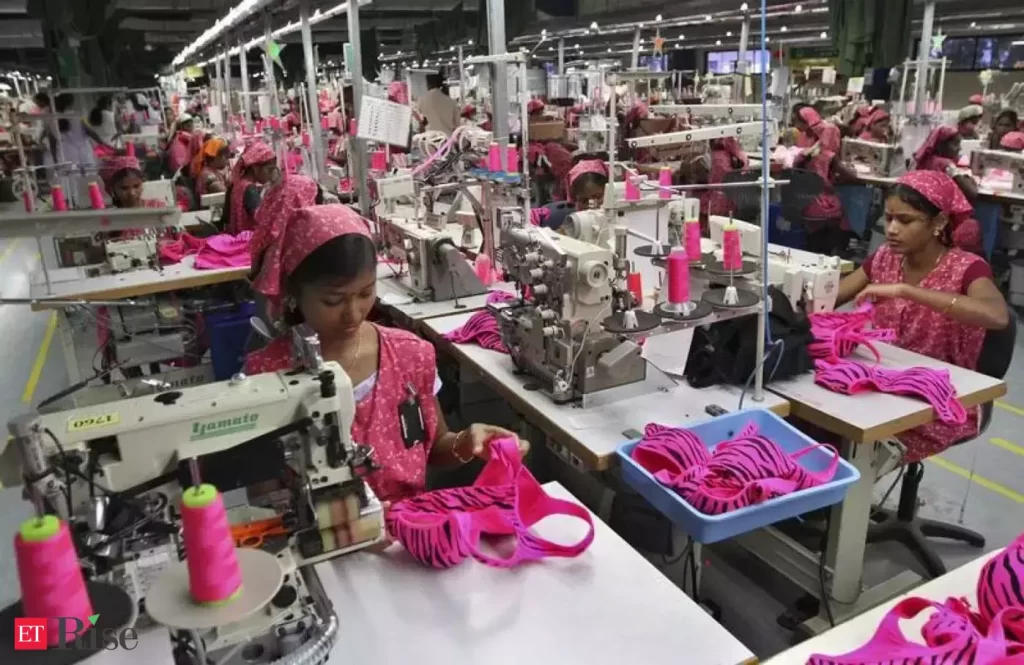Bangladesh Garment Industry, Exporter No. 2 in the world after China, facing a double Whammy from slowing global demand and energy crisis at home that threatened to thwart the recovery of the state pandemic.
Plummy Fashions Ltd., PVH Corp Suppliers, Fesyen Tommy Hilfiger Brand Parent Company, and Inditex SA’s Zara, saw a new order in July down 20% from the previous year, said Implementing Director Fazlul Hoque.
“Retailers in the European and US market either delay the delivery of finished products or postpone orders, he said in an interview. “Because inflation jumped in our export destinations, it has a serious impact on us.”
Reduced command is a risk for the economy, where the garment industry forms more than 10% of gross domestic product and employs 4.4 million people. That cannot happen at a worse time for Bangladesh because the authorities use the cutting of productivity killer power to preserve fuel reserves in the midst of the energy crisis throughout the region, which is partly caused by war in Ukraine.
“Energy supply without interruption is the key to providing products in time,” Hoque said. “We face a combination of several problems at home and abroad.
3 hours blackout
When the energy crisis hit, the cost of doing business has jumped. Standard Group Ltd., one of the leading exporters who supply to Gap Inc. and H&M Hennes & Mauritz AB depends on the generator for at least three hours a day to turn on the coloring and washing unit at the Gazipur manufacturing center on the outskirts of the outskirts of Dhaka.
The cost of electricity from the generator is three times what we get from the national network because diesel is expensive, “said Atiqur Rahman, Chair of the Standard, in a separate interview. “We cannot close the coloring and washing unit because of the power outage. If we do it, all cloths will be in vain. “
Add to that is the weakness of the Euro to the dollar that erodes the export appeal of Bangladesh, which is valued in the dollar.
“Clothing is a discretionary item,” said Charlie Robertson, head of the global economist at the Renaissance Capital. “If your energy bill in Europe shoots, then people must reduce discretionary expenditure and clothing will be one of the regions,” he said.
Regional transmission
Concerns in the Garment industry in South Asia’s country reminiscent of the orders that were canceled on the early days of Pandemi. Clothing exports fell to the lowest level of five years $ 27.95 billion in fiscal years to June 2020, before recovering. This nation sees that garment exports rise to a record of $ 42.6 billion in the year ended in June, accounts for 82% of the total exports.
The exporter also sees unpleasant signs of an estimated year-full year of Walmart Inc. and promise to reduce the price of clothing.
And there is a regional transmission effect from Sri Lanka, said Robertson, pointing to Pakistani exports that are “much cheaper” because of the weaknesses of his currency. “It adds pressure on Bangladesh and the main export market like Europe will buy less textiles” because sales growth was hit.
Bangladesh has requested loans from international monetary funds, the latest South Asian countries to ask for help because more expensive oil eating into the dollar inventory in the region.
Foreign currency reserves in Bangladesh dropped to $ 39.79 billion on July 13 of $ 45.33 billion a year earlier. That’s enough to cover about four imports of imports, slightly higher than the three -month cover recommended by the IMF. The country’s trade deficit widened to a record of $ 33.3 billion in the fiscal year ended in June.
“We had just recovered from Pandemi Covid and then came the war,” said Rahman Standard Group. “We are only victims without realizing it.”







More Stories
Mastering Google My Business: The Essential Guide for Small Businesses
The Rise of Private Label Skincare: Why Custom Formulation Manufacturers are Key to Success
The Rise of Private Label Skin Care Products and Custom Personal Care Formulations